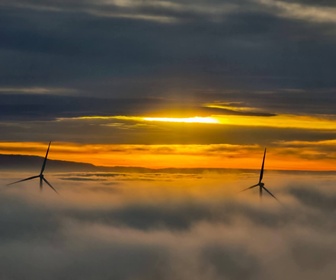Europe sets target of 32% by 2030 and corporate renewable energy leads the way
European countries gave their endorsement to a binding EU-wide renewable energy target of 32% for 2030. They confirmed a deal on the Renewable Energy Directive, which negotiators from the European Council and European Parliament reached on 14 June 2018. According to the deal, 32% of Europe’s final energy consumption will need to come from renewables by 2030. European countries also agreed on some concrete measures that will underpin the delivery of the target.
Countries have to provide at least five years’ visibility on public support for renewables, including the timing, volumes and budget for future auctions. This will provide much-needed visibility to the wind industry on when and where to invest. Countries will be allowed to run technology-specific auctions – key to them being able to plan their energy transition effectively. And it is important for investors to have more predictability on the design of support schemes.
The deal also includes an investment protection clause preventing retroactive policy changes to existing renewable energy projects. And it says that procedures for new and repowered installations need to be simplified with shorter deadlines to enable swifter buildout of wind energy. Finally, European countries will have to tackle any administrative barriers to the development of corporate renewable power purchase agreements (PPAs).
Google, Microsoft, IKEA Group, BT, Danone, Amazon, Enel Green Power, Engie, RES, Iberdrola and Facebook have become Steering Group members of the RE-Source Platform, which pools resources and coordinates activities to promote a better framework for corporate renewable energy.
The RE-Source Platform aims to raise awareness and accelerate renewable investments and corporate renewable PPAs in Europe. Several deals have been signed in Europe in recent years, providing corporate buyers with reliable and competitively-priced power, but the potential for more is huge. In 2017 more than 1GW of PPA deals were signed in Europe.
The recent growth of corporate sourcing in European markets, like Sweden, the Netherlands and Norway sees them positioned as ‘PPA friendly’. In the rest of Europe, certain regulatory barriers exist, making it difficult for corporate buyers to procure renewable electricity via PPAs.
When it comes to wind energy corporate PPAs, Scandinavia is ahead of the rest of Europe. In the first half of 2018, Norway and Sweden saw corporate wind PPAs signed totalling almost 1.4GW, a figure equal to all the corporate PPAs signed in Europe in the whole of 2017.
This is according to the findings outlined by A Word About Wind in the latest report in its Finance Quarterly series, called ‘Europe’s PPA Revolution’. A key focus of this edition is the Scandinavian market, and particularly the question of just how countries like Sweden and Norway have managed to attract heavyweight corporate buyers, such as Facebook and Alcoa, to sign PPAs of such significance. According to A Word About Wind’s analysis, three main reasons lie behind Scandinavia’s PPA success: demand from data centre operators, stability and cost.
Big corporations sign the PPAs to secure their energy demand but probably also to improve their image. Those companies are the big energy users of our time, so they need to show the rest of us that they care about a green world. All and all this is good news for our industry and the planet in general.
Enjoy reading,
Floris Siteur
Publisher
Publisher









